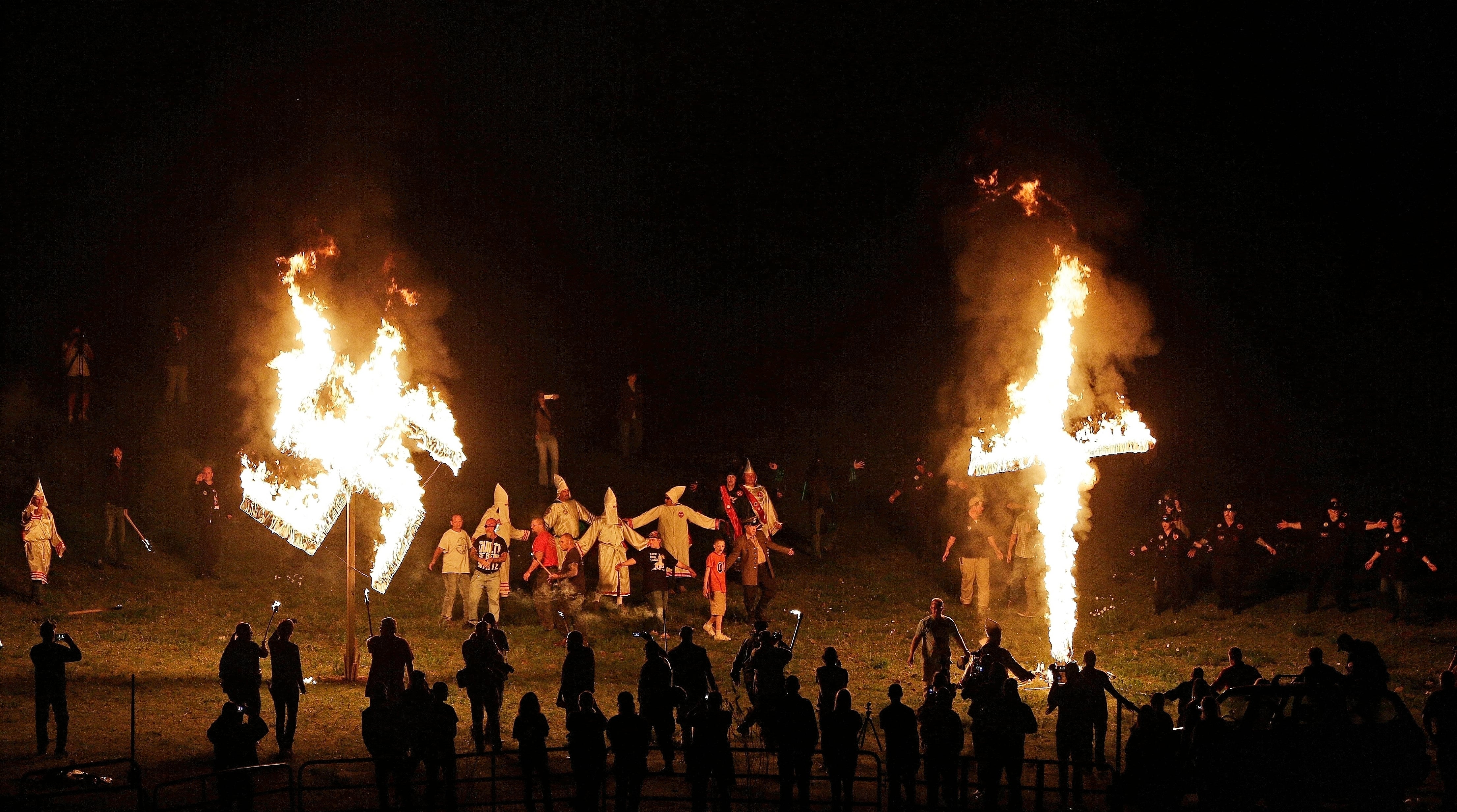An administrative discharge board has recommended the discharge of an airman who was found to have ties to a white nationalist group.
Tech. Sgt. Cory Reeves was demoted from master sergeant last year after the Air Force investigated allegations he was a member of and fundraiser for the white nationalist group Identity Evropa. The Office of Special Investigations confirmed he was an active participant and fundraiser, an OSI official told lawmakers earlier this month.
In December, Air Force spokeswoman Ann Stefanek said discharge proceedings against Reeves were pending.
Stefanek said in a Saturday email that the board had recommended Reeves’ discharge from the Air Force, but because he has more than 16 years of service in the Air Force — he entered active duty in November 2003 — he is entitled to a review of that recommendation. The review process is still ongoing.
An anti-fascist group in Colorado last April accused Reeves, who was then an operations superintendent in the 2nd Space Operations Squadron of the 50th Space Wing at Schriever Air Force Base in Colorado Springs, of being a member and organizer of Identity Evropa in an online post. Colorado Springs Anti-Fascists posted photographs — allegedly of Reeves wearing Identity Evropa-branded clothing and taking part in one of its protests — and said he distributed white supremacist propaganda in Colorado several times and was a “patron” member who contributed more in monthly dues than regular members pay.
Identity Evropa is classified by the Anti-Defamation League as a white supremacist group focused on preserving “white American identity,” and which claims America was not intended to be a multiracial or multicultural society.
After the April post, the Air Force began an investigation into Reeves, which was completed by August. The Air Force declined to release the investigation, citing the Privacy Act, but in November confirmed that Reeves had been demoted to technical sergeant on Sept. 11.
RELATED

But the Air Force’s perceived slowness to act in Reeves’ case drew harsh criticism from lawmakers in a House Armed Services subcommittee hearing Feb. 11. Rep. Deb Haaland, D-New Mexico, suggested that the Air Force’s lack of prompt action undermines the military’s efforts to encourage diversity, as well as morale and unit cohesion.
“Only recently, after facing intense pressure, did the Air Force decide to begin the process of removing [Reeves] from the military, and that’s a concern to me," Haaland said.
Robert Grabosky, the deputy director of law enforcement at the Air Force Office of Special Investigations, said at the hearing that Reeves was an active participant and fundraiser for Identity Evropa, and that he received a letter of reprimand alongside losing a stripe for that activity.
OSI does not investigate airmen for “mere participation” in a white nationalist organization, Grabosky said, but does investigate “active participation” — that is, attending rallies, fundraising or taking active part in the organization’s activities.
“Mere membership” in an organization is not prohibited by Air Force policy, Grabosky said, but he noted the military has other avenues, including investigations launched by command or Equal Opportunity offices, if an individual needs to be investigated on suspicion of promoting supremacist viewpoints.
Rep. Gil Cisneros, D-California, was disturbed that Grabosky’s distinction between mere and active participation in such organizations suggested the military doesn’t have a “zero-tolerance policy” against white supremacy.
“Would we let a member of al Qaida or a member of ISIS into our military if we said that they said, ‘Well, I’m a member, but I’m not active?’” Cisneros said. “Why aren’t we doing this the same for these white supremacist groups?"
Garry Reid, the Pentagon’s director for defense intelligence, said the military does take action against service members involved with supremacist organizations. When a service member is involved with a group that seeks to deny others their basic constitutional rights, Reid said, that would lead to an adjudicator ruling them ineligible to continue serving in the military.
“They could be disqualified based on their participation,” Reid said. “We don’t wait until the next reinvestigation any more like we used to — these are occurring every day. We have public records checks, other checks where if this comes to light, someone mentions anything to an insider threat officer chain [of] command, it’s going to go to a security manager. It’s going to go to an insider threat hub. And they’re going to pull the string on that and find out what’s going on. And if it’s there, they’re going to take action.”
Stephen Losey is the air warfare reporter for Defense News. He previously covered leadership and personnel issues at Air Force Times, and the Pentagon, special operations and air warfare at Military.com. He has traveled to the Middle East to cover U.S. Air Force operations.




